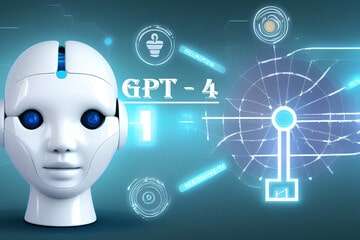
Best 10 ways ChatGPT can assist Data Scientists
“Boost your data-driven insights with ChatGPT — the AI assistant that can assist Data Scientists in 5 different Benifits of Chat-gpt, from data pre-processing to model optimization. Save time and improve accuracy with ChatGPT’s expertise in natural language processing, machine learning, and more!”
Introduction
As a language model, ChatGPT has been trained to understand natural language and generate responses that are both accurate and coherent. This makes it an ideal tool for Data Scientists who are looking to streamline their workflow and gain insights from their data.

In this blog post, we’ll explore the top five ways in which ChatGPT can assist Data Scientists.
Data Cleaning
One of the most time-consuming tasks for Data Scientists is cleaning and preprocessing their data. This involves removing any irrelevant or inaccurate data points, filling in missing values, and converting data into the appropriate format. ChatGPT can be a valuable tool in this process, as it can quickly identify and remove any duplicates or inconsistencies in the data. Additionally, ChatGPT can help with text data preprocessing tasks such as tokenization, stemming, and stop-word removal.
Data Exploration
Once the data has been cleaned, Data Scientists need to explore it to gain insights and identify patterns. This involves creating visualizations and running statistical analyses on the data. ChatGPT can assist with this process by generating visualizations based on the data and answering any questions the data scientist may have. For example, a Data Scientist may ask ChatGPT to generate a scatter plot of two variables or to provide the mean and standard deviation of a particular feature.
Model Selection
Selecting the right Machine Learning model is crucial for achieving accurate results. Data Scientists need to consider factors such as the size and complexity of their data, the type of problem they are trying to solve, and the performance metrics they are interested in optimizing. ChatGPT can assist with this process by recommending appropriate models based on the data and the problem at hand. ChatGPT can also provide information on the strengths and weaknesses of different models, helping data scientists make informed decisions.
Hyperparameter Tuning
Hyperparameters are variables that are set before the model is trained, such as learning rate or regularization strength. The values of these hyperparameters can have a significant impact on the performance of the model. Finding the optimal values for these hyperparameters can be a challenging and time-consuming task. ChatGPT can assist with hyperparameter tuning by suggesting appropriate ranges for each hyperparameter and performing a grid search or random search to find the optimal values.
Model Evaluation
Once a model has been trained, it needs to be evaluated to determine its performance. This involves calculating metrics such as accuracy, precision, recall, and F1 score. ChatGPT can assist with model evaluation by providing these metrics and suggesting ways to improve the performance of the model. For example, ChatGPT may suggest increasing the number of training epochs or adding more layers to the neural network.

In conclusion, ChatGPT can be a valuable tool for data scientists at every stage of the data analysis process. From data cleaning and exploration to model selection, hyperparameter tuning, and model evaluation, ChatGPT can save data scientists time and provide valuable insights. As machine learning becomes increasingly complex and data sets become larger and more diverse, tools like ChatGPT will become even more important for data scientists looking to make sense of their data.







